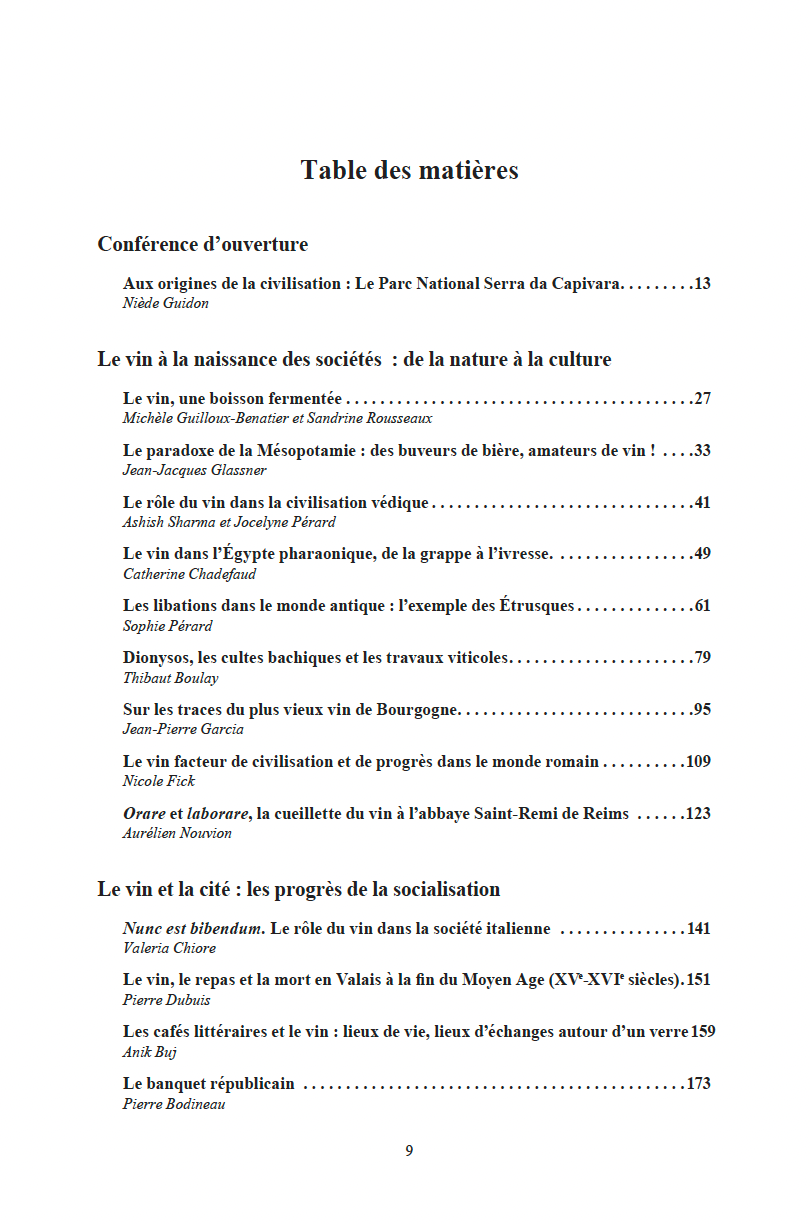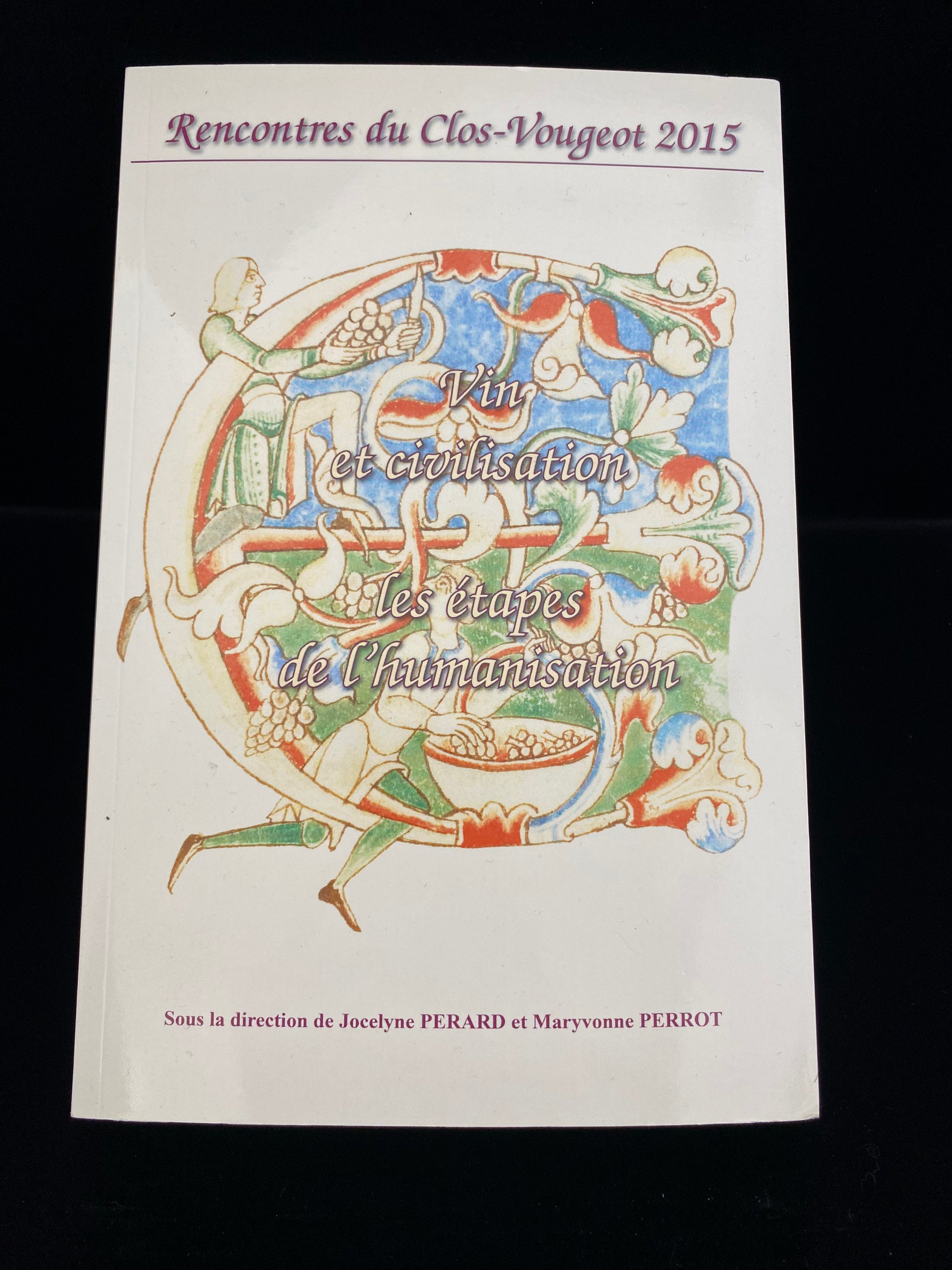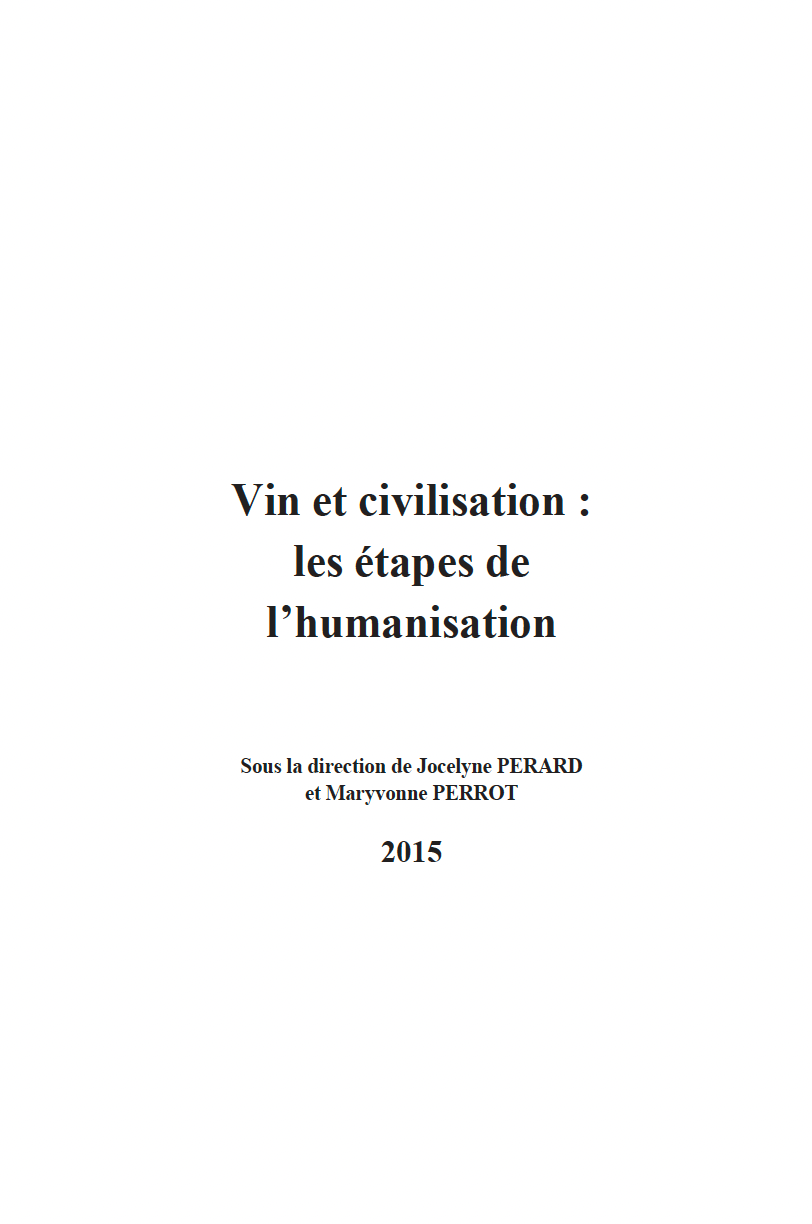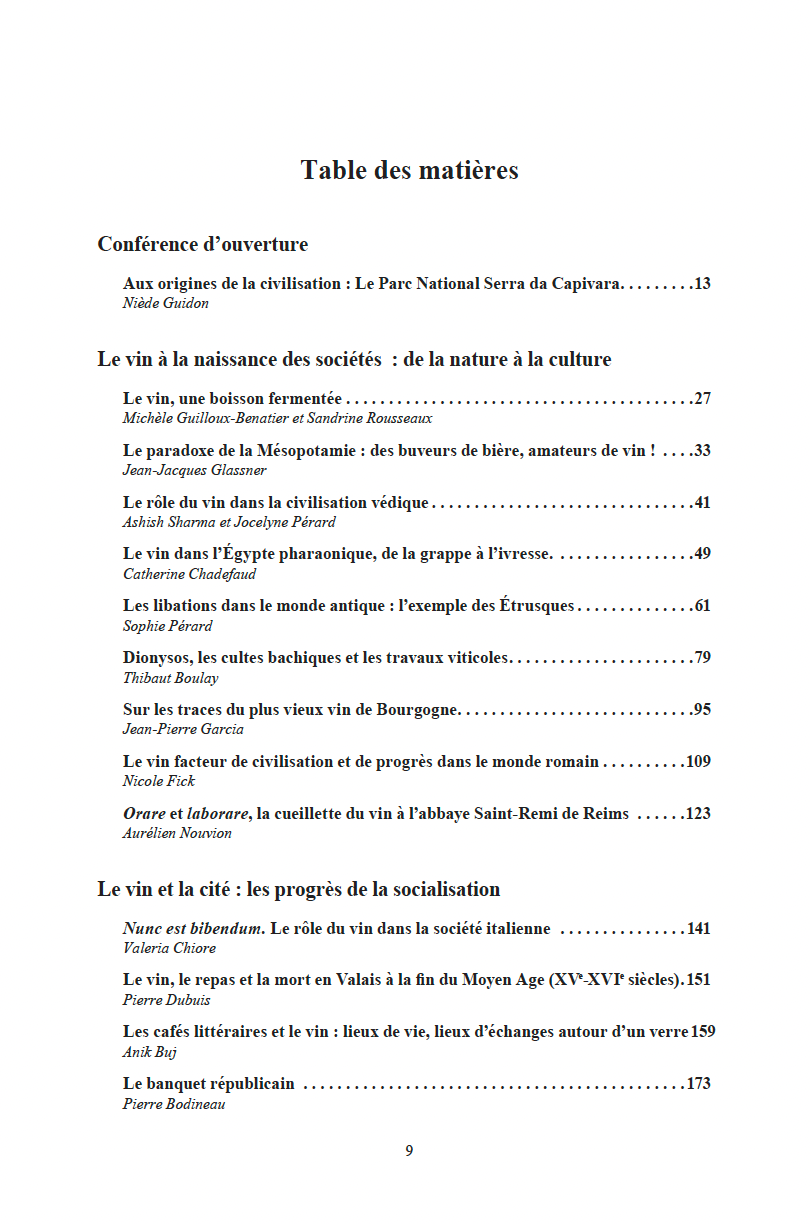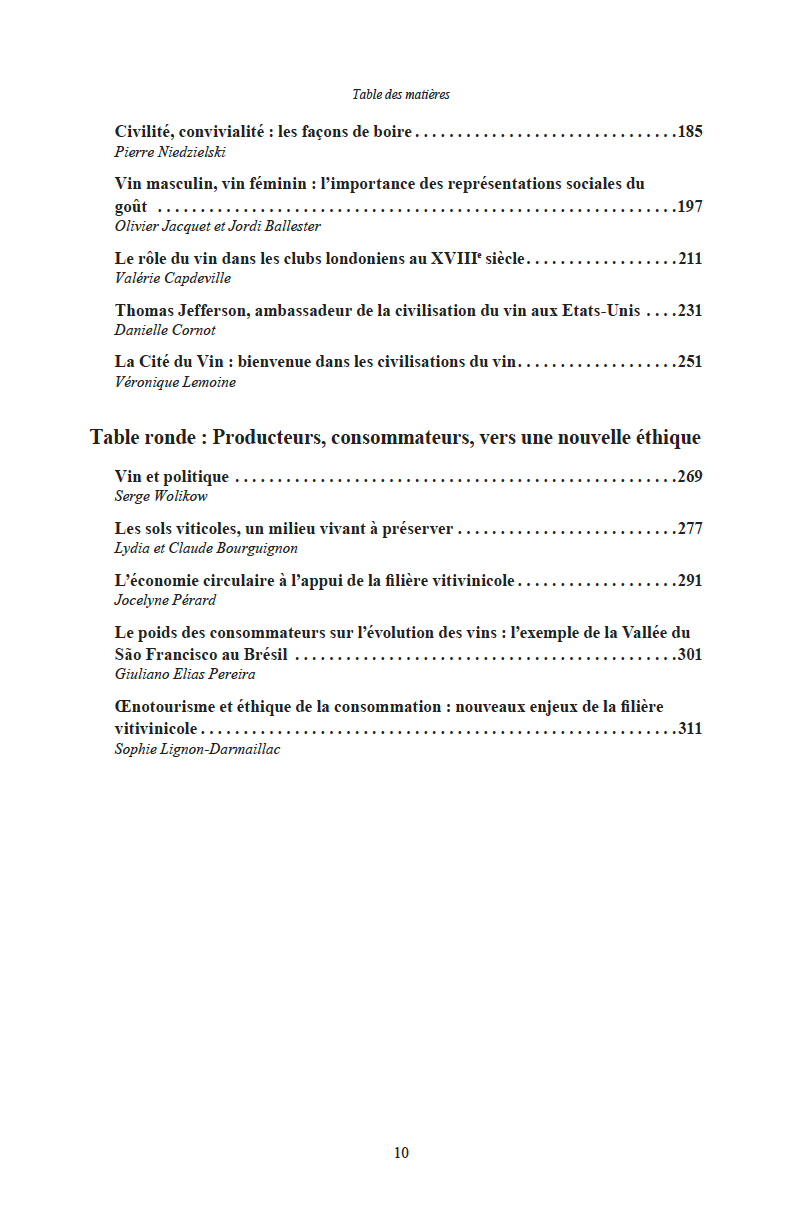RENCONTRES DU CLOS-VOUGEOT
Rencontres du Clos-Vougeot – “Wine and civilization: the stages of humanization” (2015)
Rencontres du Clos-Vougeot – “Wine and civilization: the stages of humanization” (2015)
Couldn't load pickup availability
- Under the direction of JOCELYNE PÉRARD and MARYVONNE PERROT
- Publisher: UNESCO Chair “Wine Culture and Traditions”
- French language
- Publication date: 09/2016
- Number of pages: 322
- Dimensions: 16x24cm
- Weight: 605g
- Format: Softcover
- ISBN: 9782918173199
Presentation :
Inaugurated within the framework of the UNESCO Chair “Culture and Traditions of Wine” at the University of Burgundy, the Rencontres du Clos-Vougeot have the major objective of understanding wine as a cultural product, a vector of civilization, of which informed consumption depends a true art of living and a philosophy linked to conviviality and sharing, humanist values if there ever were one.
These Ninth Clos-Vougeot Meetings, which took place on October 1, 2 and 3, 2015, dealt with the theme “Wine and civilization: the stages of humanization”. Drawing on research in various disciplines and in numerous wine-growing regions around the world, around thirty international speakers discussed, through the centuries-old history of the liana plant and its domestication, all the dimensions that make wine wine, a drink that bears witness to the birth of our societies and a factor in the progress of socialization. Since ancient times, wine has been integrated into food, rites, and even social practices, from ancient Egypt to the present day, including India, Mesopotamia, Etruria, the Empire Roman, without forgetting more recent testimonies. It operates as a structuring element of exchanges and dialogue between social categories, political elites and even between worlds of the living and the dead, the aim being to share, through a common system of signs and codes, the same culture.
An essential heritage object, it is thus not only a reflection of the civilizations that punctuate History, but above all a marker of humanization. It was therefore appropriate to question, at the end of these studies, the new ethics that the current changes in the cultural, economic and consumption practices of today's people should imply.
The product is unavailable? Chat with us online to find out more about the next arrival!
Share


